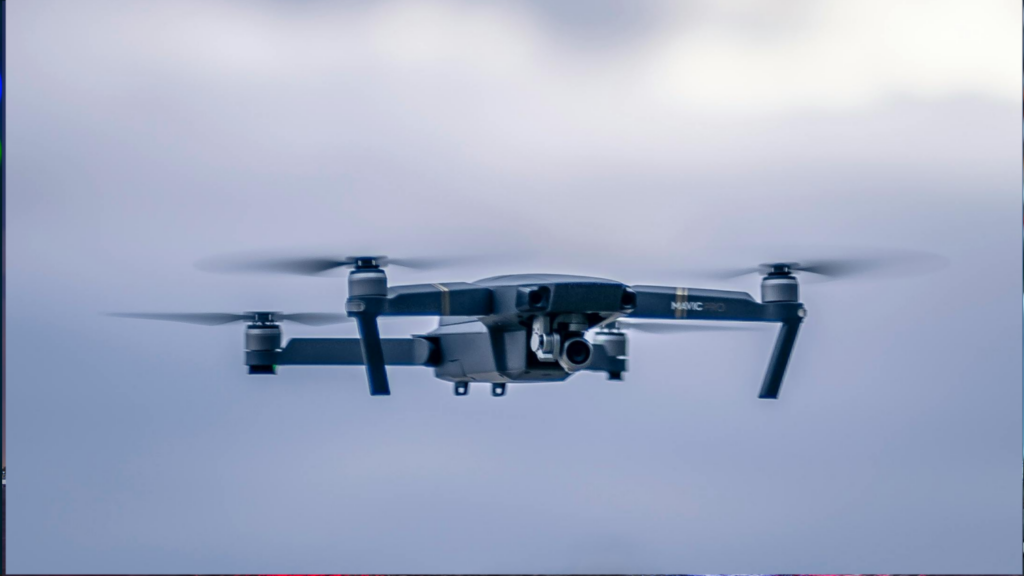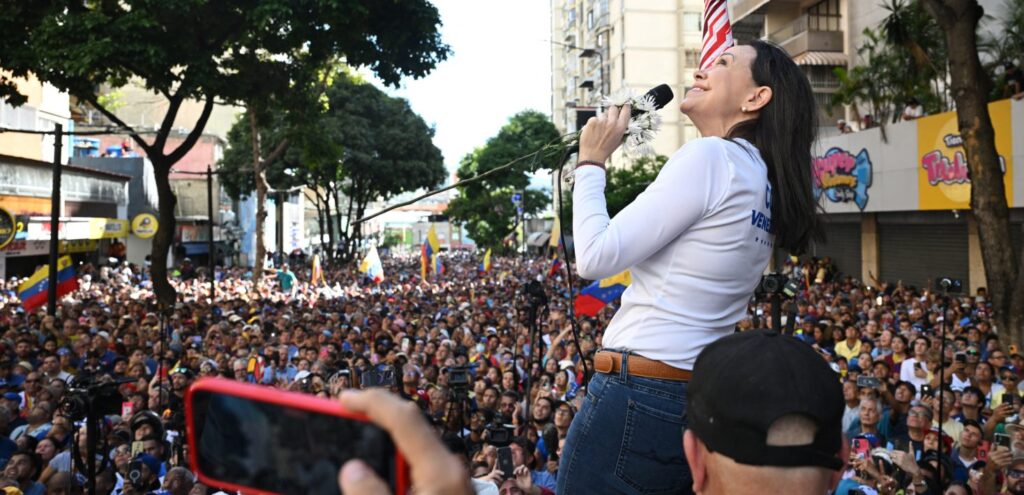Trump’s Troops in D.C.: The New Face of American Policing
Nearly a month after Donald Trump sent the National Guard into Washington, D.C., the fallout continues to ripple through public debate, with criticism mounting, concerns deepening, and a few voices still offering praise. The Guard holds its ground on the capital’s streets, a stark emblem of federal power as summer yields to autumn’s chill. Ostensibly, their task is to quell violent crime, the kind plaguing cities across North America. But critics in the US and abroad see something far larger taking shape: Washington is becoming a test case for Trump’s vision of turning the National Guard into a nationwide policing force, a paramilitary-style presence that blurs the line between soldier and cop. If realised, it would cement military oversight as an everyday reality in American life, spelling the end of democracy as we know it.
The Militarisation of the Capital
The militarization of security policy in Washington D.C. has unfolded in stages. On August 11, 2025, Trump declared a crime emergency in the capital and deployed more than 2,200 National Guard troops, seizing 30 days of direct control over city policing (Chughtai, 2025). But as that deadline nears, his grip shows no sign of loosening. Behind the scenes, FBI and DEA agents now buttress the effort, while Guard members – once unarmed – patrol with handguns. In Trump’s own words he admitted that “If I think we’re in great shape here, that’s one thing. But if I don’t, I’m just going to say it’s a national emergency…If I have a national emergency, I can keep the troops here as long as I want.” (Debusmann, 2025). The Pentagon has since confirmed to Fox News that an additional 1,700 National Guard troops will be deployed to 19 states in the coming weeks, officially to support anti-immigration and crime operations (Chughtai, 2025). Far from winding down, the militarisation of D.C. appears to be intensifying.
Confusion and Trepidation on D.C.’s Streets
Even the Guards themselves appear uncertain about their role, questioning whether patrolling American streets in peacetime is legal or constitutional. When Trump first ordered their mobilization, some troops reportedly asked the Pentagon,“is this legal?” (Parker and Youssef, 2025). It’s a striking question, given the Guard has traditionally been reserved for crises of national scale – Hurricane Katrina in 2005, or overseas operations in Afghanistan and Iraq. The last time that the D.C. Guard was deployed to protect Americans from each other was during the Capital riots of 2021 – an extraordinary and chaotic rupture in the nation’s history (Chughtai, 2021). With none of these conditions currently present in D.C., many Guardsmen are left bewildered, patrolling streets in a deployment that feels more political theater than emergency response. Evidently, in voicing their initial doubts, the troops were confronting something almost existential: whether they were turning into something entirely new.
D.C. residents are already feeling the very shift Guardsmen suspect. 80% of residents are now opposed to the occupation, stemming from the fear that the Guard is morphing into little more than a tool of political power and control (Debusmann, 2025). Nationwide, the mood is similar – nearly half of Americans (46%) denounce Trump’s use of the Guard, versus just 38% that support it (Lange, 2025) (see Figure 1). The reality of this fear is written on D.C.’s streets: empty playgrounds, deserted restaurants, and reduced street vendors. So deep is the unease that, with schools back in session, parents now form “walking buses”, escorting the children of those too fearful to leave their homes (Parker and Youssef, 2025). When pressed on the matter of “nervous Hispanic workers”, Mayor Muriel Bowser said that she was sorry “they’re living in this terror” (ibid.). So even as Trump declares “Washington D.C. is SAFE AGAIN!”, the city lives on under a harsher truth: crime persists, and so does the occupation.
Figure 1: Lange (2025)
The Rule of Law: Undermined or Upheld?
The ongoing deployment to D.C., now coupled with the threat of sending troops to Illinois and California, represents a visible manipulation of the distinction between legality and illegality. By installing troops exclusively in Democratic strongholds, Trump fashions himself as a guardian of law and order, appealing to supporters primed by rightwing media to see the nation’s most diverse cities as hotbeds of violence and iniquity. Yet, while this expansion into blue states may have legal guises in the short term, critics warn it risks dragging the U.S. toward a “prerogative state” – a government where the executive operates free of legal restraints, guided solely by the discretion of those in power (Douglas, 2025). This reality is alarming. The current president in power has pardoned 2021 Capitol rioters, gerrymandered Texas’s electoral maps in his favour, and raided the home of John Bolton, a former security advisor turned critic. Together with developments in Washington, these events point unmistakably to the authoritarian creep critics have long warned about (Parker and Youssef, 2025).
Some critics go further, warning that protests sparked by National Guard deployments in blue states could all too easily turn violent, indirectly solidifying Trumpian power. In other words, troops sent to quell violence could end up inciting it, producing a condition whereby their presence is perpetually justified. With the 2026 midterms approaching, the implications are alarming. Trump could use anticipated protests in blue states to justify deploying National Guard troops on election day, arguing they are needed to ‘safeguard’ polling stations from domestic unrest (Douglas, 2025). If Trump were to execute this plan, polling stations would fall under the control of a Guard answerable to a single powerful leader, raising serious concerns for voter rights. Evidently, Democrats face a dilemma: protest the occupation and risk imperiling the midterms, or stay silent and allow what they regard as authoritarianism to advance unchecked.
The Progress of Collective Resistance
For Democrats, a legal and nonpartisan avenue remains to counter the militarization of their states: the Posse Comitatus Act (Gambino, 2025). It recently ruled that Trump broke the law when he sent troops to LA in June to silence immigration protests – the Guard’s first deployment there since the far more severe 1992 riots over the acquittal of white officers in the beating of a Black motorist (Epstein, 2025). In response to this legal triumph, Illinois congresswoman Delia Ramirez stated that “it was illegal when Trump abused military power in LA. It would be in Chicago, too, if he unlawfully moves forward with his threats…military personnel in Democratic cities is not about safety and security. It is about control” (ibid.). Although, even as resistance gains momentum, Democrats must remain vigilant. The Posse Comitatus Act is far from foolproof, leaving room for exceptions whenever the president declares a ‘rebellion’, justifying military intervention (Douglas, 2025). Considering Trump’s record of advancing contentious claims that resist straightforward rebuttal, his definition of ‘rebellion’ might likewise be difficult to dispute. As the fate of Washington hangs in limbo, one question looms: after claiming to end ten wars abroad, is Trump about to ignite an eleventh — this time at home?
Bibliography:
Chughtai, A. (2025). When and why has the National Guard been deployed in the US before? [online] Al Jazeera. Available at:
Debusmann, B. (2025). Trump’s plan to send troops to Chicago is abuse of power, Illinois governor says. BBC News. [online] 22 Aug. Available at:
https://www.bbc.co.uk/news/articles/cd7yperjxneo
Douglas, L. (2025). Trump’s militarization of the DC police was just an opening salvo. [online] the Guardian. Available at:
https://www.theguardian.com/commentisfree/2025/aug/27/january-6-trump-chicago-military
Epstein, K. (2025). Trump’s use of National Guard in Los Angeles illegal, judge rules. BBC News. [online] 2 Sep. Available at: https://www.bbc.co.uk/news/articles/c5ylyd9lkkqo
Gambino, L. (2025). Trump illegally deployed national guard during LA Ice protests, judge rules. [online] the Guardian. Available at:
https://www.theguardian.com/us-news/2025/sep/02/trumps-national-guard-troops-los-angeles-illegal
Lange, J. (2025). Just 38% of Americans support Trump’s use of troops to police DC, Reuters/Ipsos poll finds. Reuters. [online] 26 Aug. Available at:
Parker, A. and Youssef, N. (2025). The Atlantic. [online] The Atlantic. Available at: https://www.theatlantic.com/politics/archive/2025/08/trump-national-guard-deployment-dc/6840%2055/



